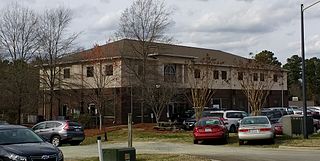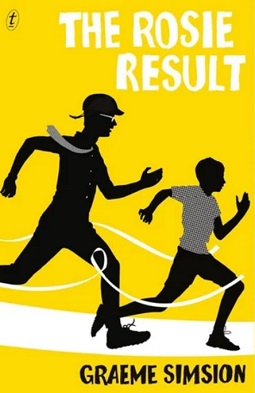
Hyperlexia is a syndrome characterized by a child's precocious ability to read. It was initially identified by Norman E. Silberberg and Margaret C. Silberberg (1967), who defined it as the precocious ability to read words without prior training in learning to read, typically before the age of five. They indicated that children with hyperlexia have a significantly higher word-decoding ability than their reading comprehension levels. Children with hyperlexia also present with an intense fascination for written material at a very early age.

The autism rights movement, also known as the autistic acceptance movement, is a social movement allied with the disability rights movement. It emphasizes the neurodiversity paradigm, viewing autism as a set of naturally occurring variations in human cognition, a disability with both strengths and weaknesses, rather than as a disease to be cured or a medical disorder. This paradigm contradicts and diverges from the medical model of disability, without opposing all aspects of it.
The refrigerator mother theory, also known as Bettelheim's theory of autism, is a largely abandoned psychological theory that the cause of autism is a lack of parental, and in particular, maternal emotional warmth. Evidence against the refrigerator mother theory began in the late 1970s, with twin studies suggesting a genetic etiology, as well as various environmental factors. Modern research generally agrees that there is a largely epigenetic etiology of autism spectrum disorders.

The University of North Carolina TEACCH Autism Program creates and disseminates community-based services, training programs, and research for individuals of all ages and skill levels with autism spectrum disorder (ASD), to enhance the quality of life for them and their families across the lifespan.

Autism Every Day is a controversial 2006 documentary film sponsored by Autism Speaks, and produced by Lauren Thierry, Jim Watkins and Eric Solomon. It follows mothers of high support needs autistic children, and consists mainly of interviews with the mothers.

Autism: The Musical is an independent documentary film directed by Tricia Regan. In April 2007, the film premiered at the Tribeca Film Festival in New York City. The film recounts six months of the lives of five children who are on the autism spectrum in Los Angeles, California as they write and rehearse for an original stage production.

Societal and cultural aspects of autism or sociology of autism come into play with recognition of autism, approaches to its support services and therapies, and how autism affects the definition of personhood. The autistic community is divided primarily into two camps; the autism rights movement and the pathology paradigm. The pathology paradigm advocates for supporting research into therapies, treatments, and/or a cure to help minimize or remove autistic traits, seeing treatment as vital to help individuals with autism, while the neurodiversity movement believes autism should be seen as a different way of being and advocates against a cure and interventions that focus on normalization, seeing it as trying to exterminate autistic people and their individuality. Both are controversial in autism communities and advocacy which has led to significant infighting between these two camps. While the dominant paradigm is the pathology paradigm and is followed largely by autism research and scientific communities, the neurodiversity movement is highly popular among most autistic people, within autism advocacy, autism rights organizations, and related neurodiversity approaches have been rapidly growing and applied in the autism research field in the last few years.

Temple Grandin is a 2010 American biographical drama television film directed by Mick Jackson and starring Claire Danes as Temple Grandin, an autistic woman whose innovations revolutionized practices for the humane handling of livestock on cattle ranches and slaughterhouses. It is based on Grandin's memoirs Emergence and Thinking in Pictures.
Autism spectrum disorder (ASD), or simply autism, is a neurodevelopmental disorder characterized by repetitive, restricted, and inflexible patterns of behavior, interests, and activities; deficits in social communication and social interaction; and the presence of high or low sensory sensitivity. A formal diagnosis requires that symptoms cause significant impairment in multiple functional domains, in addition to being atypical or excessive for the person's age and sociocultural context.

Alexander Plank is an American autism advocate, filmmaker and actor. He is known for founding the online community Wrong Planet, working on FX's television series The Bridge, and acting on The Good Doctor. At the age of 9, Plank was diagnosed with Asperger syndrome. Plank started Wrong Planet at the age of 17 in order to find others like him on the Internet. After the popularity of Wrong Planet grew, Plank began to be frequently mentioned in the mainstream media in articles relating to autism, Asperger's, and autism rights.
Autism spectrum disorders (ASDs) or autism spectrum conditions (ASCs) describe a range of conditions classified as neurodevelopmental disorders in the DSM-5, used by the American Psychiatric Association. As with many neurodivergent people and conditions, the popular image of autistic people and autism itself is often based on inaccurate media representations. Additionally, media about autism may promote pseudoscience such as vaccine denial or facilitated communication.
Discrimination against autistic people involves any form of discrimination, persecution, or oppression against people who are autistic. Despite contention over its status as a disability, discrimination against autistic people is considered to be a form of ableism.
Matthew Belmonte is a reader in psychology at Nottingham Trent University who researches the behavior and neurophysiology of autistic individuals. He has studied the behavioral aspects of autism by providing subjects with videogames that measure several perceptual properties. Belmonte has received a $700,000 National Science Foundation grant to study this aspect, and uses MRI and EEG technology to measure brain activity of autistic and non-autistic individuals. He has an older brother with autism, and both have a fascination with order and regularity. In his essay 'Life Without Order: Literature, Psychology, and Autism', Belmonte stated that he was inspired to pursue a career in science because of his need for a single right answer.
Nonverbal autism, also called nonspeaking autism, is a subset of autism spectrum disorder (ASD) where the person does not learn how to speak.

Loving Lampposts is a 2010 documentary film directed by Todd Drezner, exploring the neurodiversity movement and the principle of autism acceptance through a series of interviews and candid footage. Drezner is the father of an autistic child whose attachment to and fascination with lampposts gave the film its title.

The Rosie Result is a 2019 novel by Australian novelist Graeme Simsion. The work was first published on 5 February 2019 by Text Publishing.

Dinah Karen Crawshay Murray was a writer, educator and campaigner for autistic people. She collaborated in developing the theory of monotropism as a way of explaining autism in terms of a tendency to focus intensely on a subject.

Current research indicates that autistic people have higher rates of LGBTQ identities and feelings than the general population. A variety of explanations for this have been proposed, such as prenatal hormonal exposure, which has been linked with sexual orientation, gender dysphoria and autism. Alternatively, autistic people may be less reliant on social norms and thus are more open about their orientation or gender identity. A narrative review published in 2016 stated that while various hypotheses have been proposed for an association between autism and gender dysphoria, they lack strong evidence.
Various connections have been made between violence and autism within social narratives. According to public opinion, violent behavior is common for autistic individuals, but evidence does not support autism spectrum disorder (ASD) as a predisposition to delinquency or crime. Autistic people are likely to be victims of bullying, abuse and other violence.












